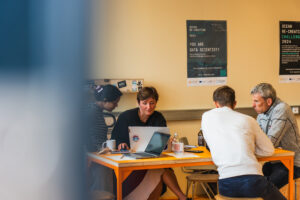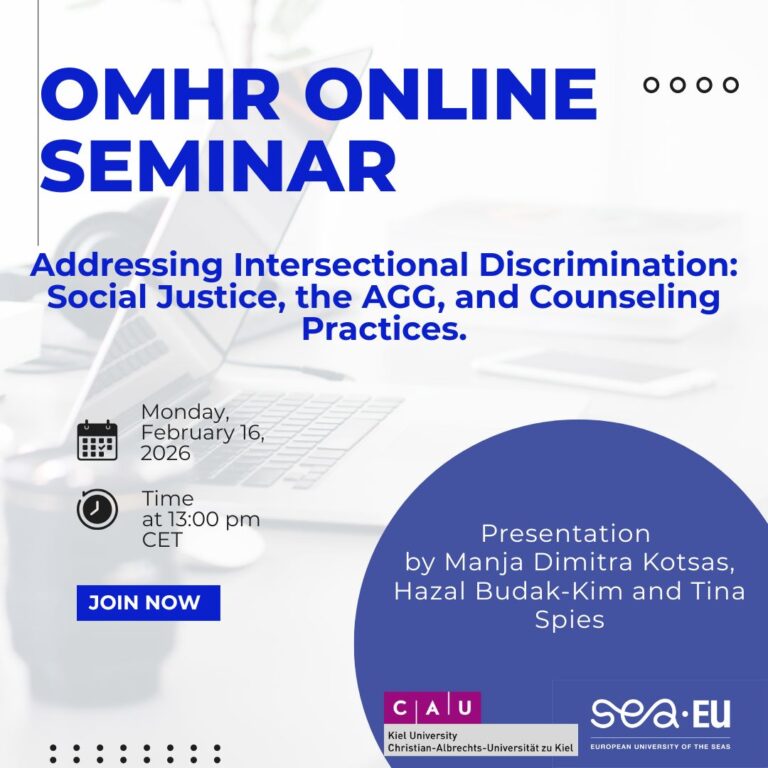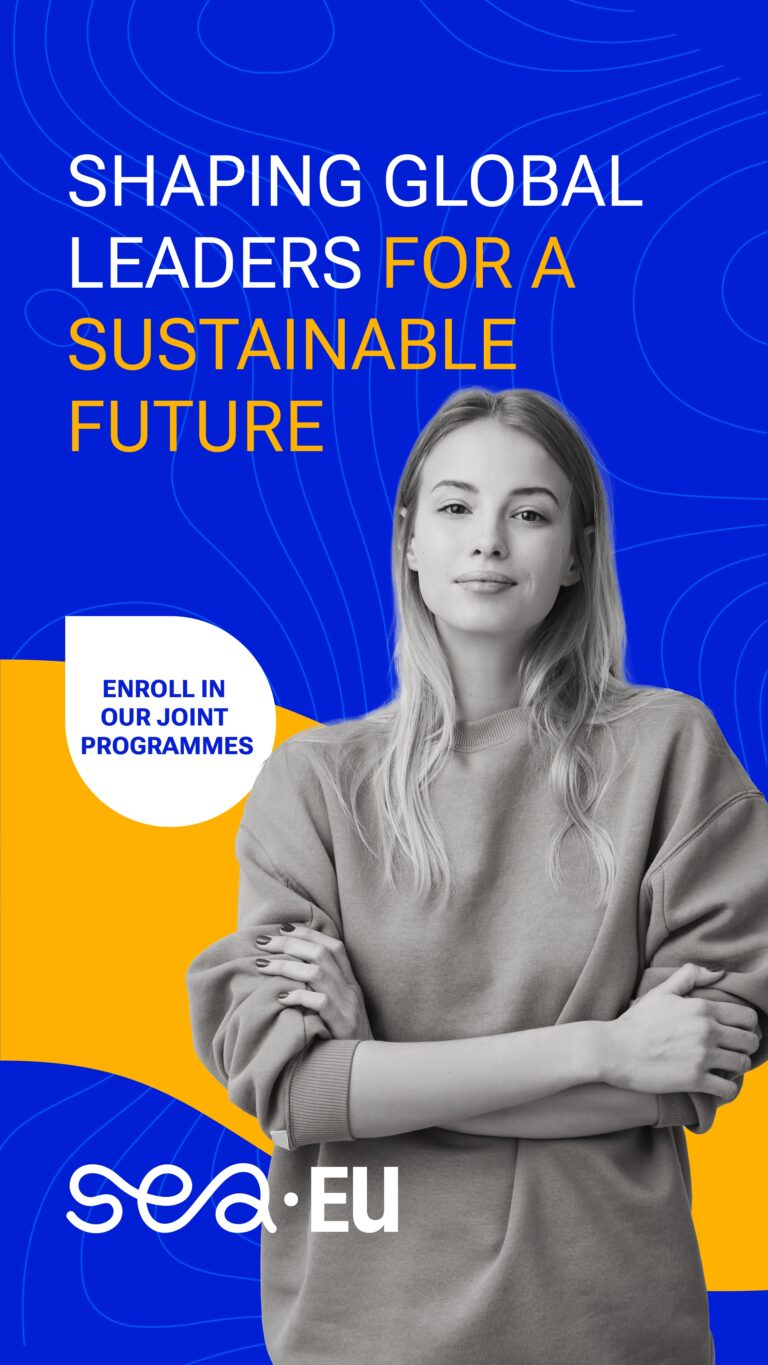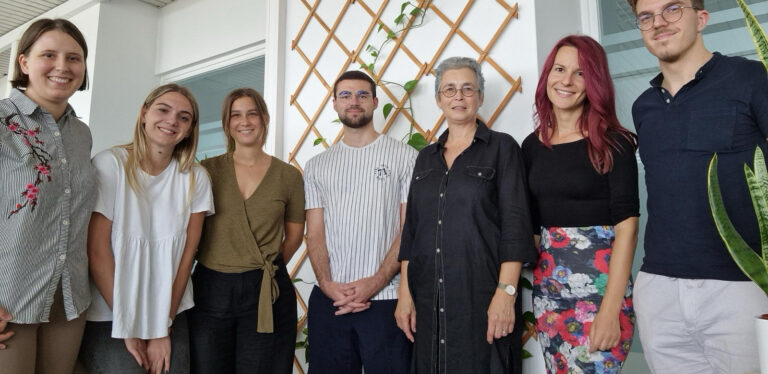Always eager to expand her horizons, Masters’ student Urszula Kędzierska signed up for the SEA-EU Virtual Marine Open Elective Module on “Metal Contaminants – metals in the ocean”, an opportunity to complement her own studies and research in the field of oceanography at the University of Gdańsk. The experience led to a three-month research internship in Kiel, fulfilling a long-standing ambition to learn about remote sensing technology and satellite data. From Kiel, she travels on to SEA-EU Partner Cádiz, taking with her a wealth of experience and knowledge. Here she talks about her journey so far and her advice to other young scientists.

Welcome to Kiel, Urszula! What are you hoping to learn during your internship here in Kiel?
I am here to learn about remote sensing technology and satellite data approaches in oceanography. That is the expertise of the Earth Observation and Modelling group here in Kiel where I am doing my internship. So far, I have been getting to grips with the different software and then I will apply it to my research. My oceanography studies at the University of Gdańsk focuses on biological topics, so unfortunately there is not much opportunity to play with this type of data and methods. For the past couple of years I have been interested in data analysis and I want to apply an analytical approach to my marine biology research. I want to work with satellite data because it gives a wider context for specific research questions. So, I decided that for the summer vacation I would find a place where I can gain practical experience in remote sensing.
Tell us a bit more about your research, and how you hope to apply this new knowledge.
I am interested in the ecology of Arctic zooplankton. As part of my Masters’ thesis, I analyzed the distribution of Ostracods, a class of crustaceans. I want to see how population size relates to sea ice concentration. So I combine biological components with physical components, which is where the remote sensing and satellite data comes in. Generally, though I try to explore other disciplines outside marine biology because I think it’s very important in ocean studies to at least get know other aspects and perspectives. I think this approach is in my nature – I like to build a bigger picture based on specific facts.
What was the first contact with Kiel?
I took a SEA-EU virtual Marine Module on Metal Contaminants organised by Kiel University. It was a great course, thanks to the teachers who put a lot of effort into the program; they invited speakers from other disciplines to show a wide spectrum of topics, and they created a great course atmosphere too. So, after the course I asked Professor Sylvia Sander (one of the teachers) if she knew of any possibilities for an internship where I can learn about remote sensing technology. She put me in contact with Professor Natascha Oppelt, head of the EOM group where I am now, and yeah, here I am studying this technology that I’ve been interested in for so long. So that’s nice!
What will you take with you from your time in Kiel?
Actually, after these three months in Kiel I go on to Cádiz for a semester to study oceanography there! So, besides learning about a broad range of subjects, I have always had the idea to experience different cultures by living and working in different places. I like that in Kiel people seem very chilled, and are ecofriendly – for example, they travel a lot by bike. From interactions with my neighbours, I have the impression that people care a lot about their social circle and family, and life seems calm.
For me Kiel is a very nice place to be and stay and there is also plenty of opportunity in marine research. I spontaneously participated in two exciting events. First, the summer school: “Diving into Change” at GEOMAR, organized by FYORD and PACT. And during the last few days of my stay, in the hackathon “Ocean Re-CREATION Challenge”. Together with my team, we found interesting applications for marine data, also in the field of remote sensing. Our business model received the first prize from the jury. It was a great surprise. I hope that this success will bring me further professional opportunities. People might complain about the weather here in Kiel, but to be honest, I am not really into very hot weather! I got into swimming in the Baltic Sea, here it is much more popular than in Poland. I am very happy that I did my internship in Kiel and I am thinking about coming back next summer.
What advice do you have for other students thinking about doing a research internship or expanding their research portfolio with modules such as virtual marine modules?
I really think that during your studies it is important to find your own way and find the things you are interested in, not necessarily just follow the main path. This is a good time to explore and see what different possibilities, subjects and even countries are out there.. And I really think it’s important to follow the people who are kind and show they care about their students and are interested in your progress. That is a good indication that it is a place where you will have the good opportunity to learn. This is also why I decided to reach out after the Metal Contaminants module; I had very good impression about the teachers and felt they would be happy to help. To learn a complex subject you need to be in a welcoming, nice environment and I think Kiel is a very good place in this regard.



